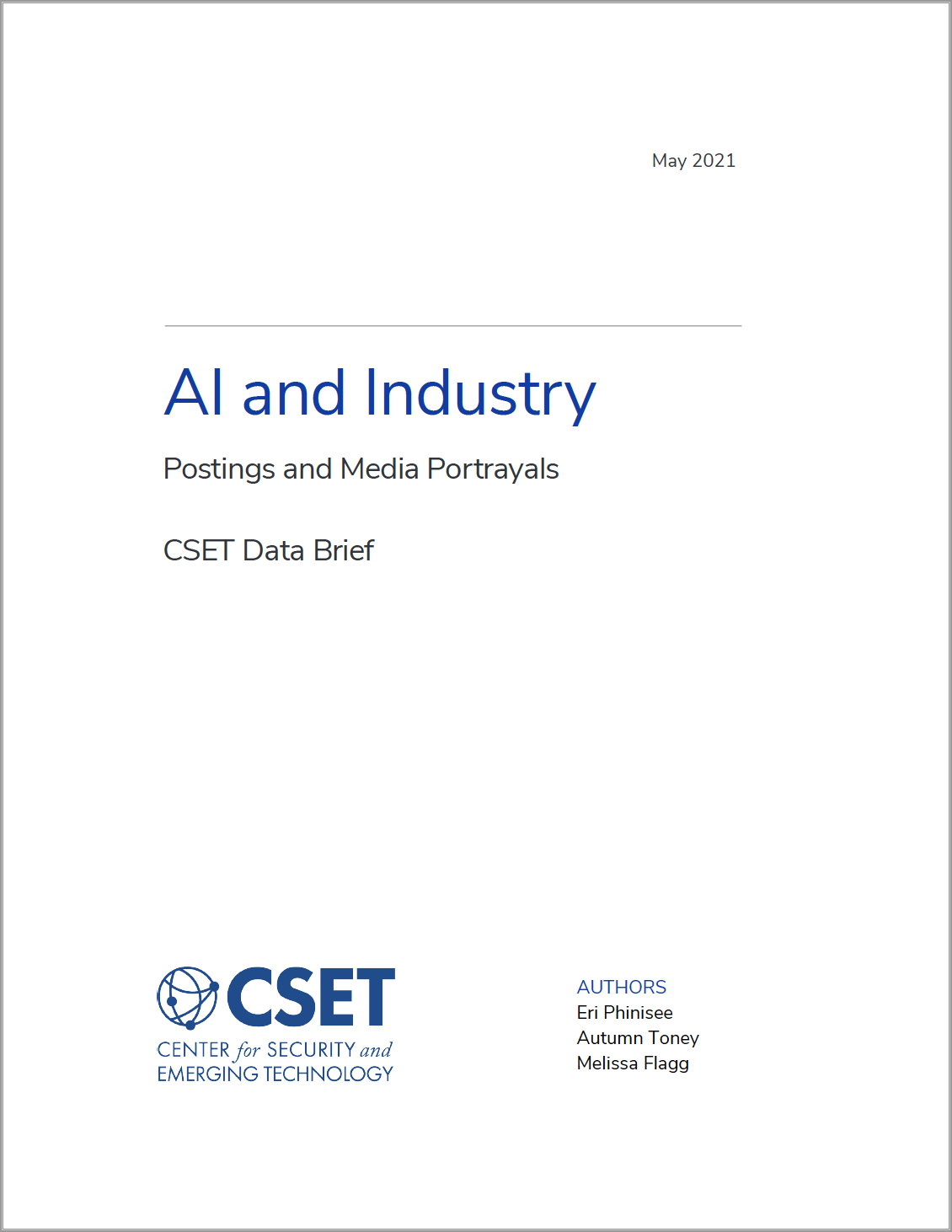Introduction
Over the past 10 years, “artificial intelligence” has become a seemingly ubiquitous buzzword, found in everything from academic papers and news articles to movies and government proceedings. It is said to be transforming the global economy and society in what some dub as the “fourth industrial revolution,” and the COVID-19 pandemic has only accelerated the adoption of AI-powered automation. This paper takes an initial look at media representations of AI and any alignments or misalignments with the requisite AI skills needed by industries to make AI a practical reality. This type of distortion is important as the U.S. Congress begins to place an increasing emphasis on AI as an emerging technology that is transitioning to create economic value and new jobs across the country. If government funds are shifted away from other areas of science and technology, based partly on the representations that leaders and the public believe, it is important to understand the truth underpinning those beliefs.
In order to tackle this question, we take a look into how industries are seeking out talent to turn the promise of AI into real world products and services. While we do not address the pervasive and complex challenge of whether or not there is an AI talent shortage in the United States, we recommend, “The U.S. AI Workforce: Labor Market Dynamics,” by CSET’s Diana Gehlhaus and Ilya Rahkovsky. In this data brief, we leverage the framework laid out by Gehlhaus and Rahkovsky to specifically consider the patterns of AI-related job postings across a sampling of industrial sectors chosen to represent areas often perceived as being transformed and automated due to AI. We consider sectors that capture the imagination with news of things like real estate apps and self-driving cars, alongside sectors that represent the tech giants, commonly touted as some of the most active in hiring for AI talent. In this study, we examine news articles to analyze media portrayals of AI and industry, and then in order to begin to truly understand the reality of the demand for AI talent across sectors, we delve into data on AI job postings and associated in demand academic majors. With this study, we hope to initiate a conversation around the reality of AI progress beyond what is reported in the news.
Our key findings are:
- While the information sector (which includes the tech giants) dominates media stories related to AI, the majority of AI-related job posts come from the Professional, Scientific, and Technical Services sector and the Manufacturing sector.
- Focusing too much attention on the tech giants may mean major areas are neglected where AI is actually being commercialized.
- AI-related job postings show that integrating AI into real-world industrial products involves more than just researchers developing the next cutting-edge algorithm in a lab at a big tech company.
- It is clear that a range of AI skills are essential across industrial sectors, and that in particular the data shows an undeniable market signal for product development skills (such as project or product managers and legal compliance officers).
- Even within the most technical job postings, we see that recruitment from a diverse range of majors beyond those that are strictly considered STEM.
